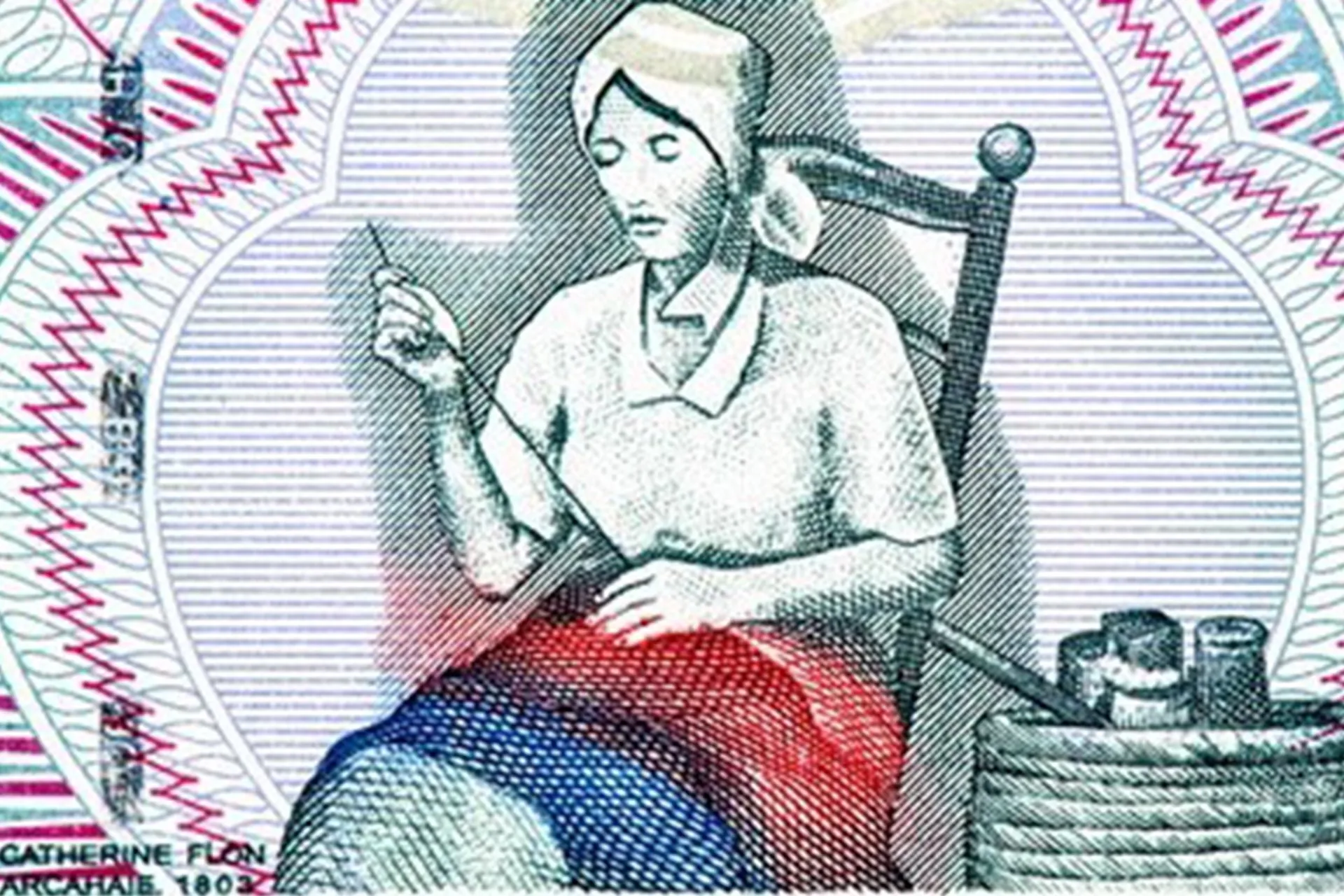
Catherine Flon (1772-1831) was a Haitian seamstress, patriot and national heroine
By Ambassador Phatse Justice Pitso
18 November 2024
History bequeaths the warrior women of the Amazons of the Latin American and the Caribbean archipelago, the most profound to have shaped the world by their example, demonstrating unparalleled milestones of relentless struggles, for freedom and dignity of humanity.

The epoch breaking landmarks of relentless resilience and heroism, magnify them true philanthropists of the golden age of human civilisation.
On the canyon of the magnificent thousands hills of hope in the pearl of the Antilles, along the paradise of the blue Caribbean Sea, during the historic congress of Arcahaie, a needle in the hands of a beautiful slave woman of the African descent, knitted a flag which its illuminating colours, sparked the flames of the world revolutionary movement.
The magnetic hands of the slave woman Cathrine Flon, knitted the fabric of the first flag of the first independent slave republic of Haiti.
The historic congress of Arcahaie, took place against the backdrop of the mounting tensions between the two martial forces, led by General Jean Dessalines and Alexander Sabes Petion, who were at loggerheads over the control of both the East and the West of Saint Domingue.
The east is the present day republic of Haiti and the west is the present day republic of Dominican Republic, which were respectively under the jurisdiction of the French and Spanish colonial regimes.
The principal strategic question was the consolidation of the two warring factions against the impending onslaught of the revolutionary upsurge by Napoleon Bonaparte. The unity Congress of Arcahaie unanimously agreed on the formation of the new army and the adoption of a new flag, signifying the birth of a new nation from the unyielding womb of tumultuous struggles.
During the plenary session, the newly elected leader of the slave rebellion, General Jean Dessalines, instructed one of the warrior women of the Amazons, Cathrine Flon, to knit a new flag of the coming independent republic. The architectural designs of the flag were derived from the French tricolour national flag, by removing the white band between the blue and the red colour.
The white band represented the monarchy, whilst the red colour represented the blood and sacrifices of the heroes and heroines of the struggles and the blue colour an emblematic of hope and unity of the people. The motto of the flag was freedom and death, vowing to ensure that slavery could not rise its ugly head again in their mother land.
Upon the completion of the design and sewing of the flag on the 18 May 1803, all delegates from the plenary of the Congress took an oath of allegiance before it, swearing a pledge of liberty, freedom and death. The pledge which was called the oath of the ancestors, is still celebrated today as the Haitian national flag day.
Annals of history, will remember Cathrine Flon, to have birthed the new flag of the slave republic, which has come to symbolised the freedom of all humanity, of the millions of the downtrodden, the suffering people of the world, the flag which represents the aspirations of the future of humanity.
It represented the resilience, strength and determination of the slave people to overcome adversity.
The tapestry of the rich history of heroic struggles by legendary figures such as Cathrine Flon, is a living testament of the centrality of the leadership role of the womenfolk in the building and formation of the modern day society.
The nobility of their leadership role to the struggles for the freedom of humanity, does not only distinguish them the most beautiful flowers to have birthed the first black independent republic but its blossoming ideas.
Women guerrilla fighters of the Paris Commune, who history revere the spectrum of the struggles of the new world of democracy, such as Louise Michel, one of the members of the Vigilance Committees of the Commune, when French government sent troops to seize the cannons from the militant working class, staged a fierce resistance, forcing the powerful regiments of the monarchy, to turn the guns against the commanding officers. The Paris Commune is renowned the first working class revolution in the history of the struggles of humanity.
In her memoir published in 1886, Louise Michel writes” barbarian I am, love cannon, the smell of the powder, machine guns bullets in the air, that’s all”. Her fervent conviction to the noble cause of the struggles for the freedom, was nourished by the very same ideas that the liberation of women cannot be accomplished, without the liberation of the whole of society.
The Tricoteuses, the mothers of the French revolution, the knitting women of the markets of Versailles, who gained prominence by staging a successful march in protest against the rising food prices, forcing King Louis XVI to accede to their demands and also agreeing to relocate the capital city of French from Versailles to Paris, are the examples of how throughout history, women demonstrated remarkable feats of courage and determination, becoming the pathfinders of the new foundations of the modern society.
During the trials of the reign of terror, after facing much resistance from the male dominated political establishment, decided to sit at the palace of the revolution, knitting in between each execution at the guillotine, ululating as each head fell. This was during the historic period of the development of human society, when the bloody realities of the defining moment, from the womb of the feudal society, gave birth to the new society of capitalism.
When Napoleon Bonaparte assembled one of the largest contingents of his soldiers under the command of his brother in law, General Charles Emmanuel Leclerc, his only male dominated army was accompanied by women who were wives, cooks and prostitutes, whilst on the other side of the Atlantic, General Toussaint Louverture , was preparing a formidable army of the slave people, constituted not only of men, but the warrior women of the Amazons of the Antilles, who were ready to take the forefront trenches of the battlefield.
Napoleon sent a massive expedition of more than forty thousand soldiers to the most lucrative colony of Saint Domingue, to wrest the revolutionary uprising of the slave people, which was igniting a wave of slave rebellion in the British and French colonial archipelago. The coming of the age of the revolutionary upsurge of the Latin American and the Caribbean wars of independence.
On his arrival to the shores of the colony of Saint Domingue, General Leclerc wrote a letter to Napoleon, committing himself that the army expedition would destroy all the blacks of the mountains, men and women, and spare only children under the age of twelve years, that he would ensure that his soldiers do not to leave a single coloured person in the colony, who has worn an epaulette.
General Dessalines defeated the French army at the battle of Vertieres on the 18 November 1803, reclaiming the indigenous Taino name of Haiti, which means the land of the mountains, therefore ushering in a new era of freedom to the slave people. Building on the foundations of the aspirations of the millions of the people of the world, free of slavery.
During the occupation of Haiti by the United States of America during the year 1915 – 1934, the empire banned the flag of the slave republic, declaring treason for anyone to hoist the flag in the public arena. But many of the Haitians held secret ceremonies in their homes in a form of lunches and other forms of social togetherness, celebrating the national flag day.
On the 02 January 1893, Frederick Douglass, the former minister of the USA on Haiti, who resigned from his post in protest against the cruelty of the system of slavery to the Negroes of Saint Domingue, gave a pathbreaking lecture about Haiti, titled” The Haitian Pavilion” delivered at the world fair, in Jackson Park, Chicago, giving account of how the Haitian revolution, profoundly shaped the world, giving enormous impetus to the new era of human democracy and civilisation.
He says, “My subject is Haiti, the black republic, the only self-made black republic in the world. I am to speak to you of her character, her history, her importance and her struggle from slavery to freedom and statehood.
Until she spoke, no Christian nation has abolished Negro slavery. Until she spoke, no Christian nation had given to the world an organised effort to abolish slavery. Until she spoke, the slave ship, followed by hungry sharks, greedy to devour the dead and dying slaves, flung overboard to feed them, ploughed in peace the South Atlantic painting the sea with the Negro blood. Until she spoke, the slave trade was sanctioned by all the Christian nations of the world and the land of liberty and light included.
Men made fortunes by this infernal traffic and were esteemed as good Christians, and the standing types and representatives of the Saviour of the world. Until Haiti spoke, the church was silent, and the pulpit was dumb, slave traders lived and slave traders died. Funeral sermons were preached over them, and of them it was said that they died in the triumphs of the Christian faith and went to heaven among the just”.
We are ennobled by the extraordinary feats and living examples of heroism and dedication by the women of the Latin American and Caribbean hemisphere, their incalculable episodes of epic struggles against imperialism and colonial domination, shall forever inspire generations of humankind.
They did not just resented the shadows of death of slavery, but loved the darkness of the nights which hidden them from the agony of oppression and exploitation, they treasured the stars over the mountains and the blue skies of the rain forest of the Amazons, knowing well that they would see the sun when it rises. They carried the hopes in the warmth of their hearts, knowing that revolutions do not die, but simply change with the material conditions of the time.
They volunteered themselves for the noble cause of the struggles for the freedom of humanity, aware that men and women of conscience should die, without their immortal inviting tears, as their unnamed bodies fertilise the topsoil of the earth, without flowers and the hymns of the funeral ceremony and procession. They shall be celebrated by the heavens into eternity and shall be celebrated by our mother earth into posterity.
***
Ambassador Phatse Justice Piitso is a member of the African National Congress, writing this article in his personal capacity.








